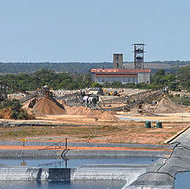On Sept. 23, Zambian authorities announced that longtime opposition leader Michael Sata had won the country's presidential election, held three days previously. Sata's victory is notable for two reasons. First, African incumbents like outgoing President Rupiah Banda seldom lose elections. Second, Sata's anti-China rhetoric has made Beijing nervous -- and other observers curious -- about whether Zambia will now spearhead an African backlash against Chinese economic activities on the continent.
Anatomy of an African Opposition Victory
Michael Sata, 74, began his career as a police officer and railway worker, before breaking into Zambian politics in the 1960s. His steady rise led to the governorship of the capital, Lusaka, in 1985. In 1991, he joined the Movement for Multiparty Democracy (MMD) and helped sweep the country's first president, Kenneth Kaunda, from power after 27 years in office. Through the 1990s, Sata was close with President Frederick Chiluba, but in 2001, after failing to obtain the MMD's presidential nomination, he broke off to form his own party, the Patriotic Front (PF). He has run for president four times, increasing his share of the vote with each campaign. In 2001 he scored less than 4 percent, but in 2006 he emerged as the main opposition figure, winning 29 percent of the vote to incumbent President Levy Mwanawasa's 43 percent. After Mwanawasa's death and the succession of Vice President Rupiah Banda in 2008, a by-election was held. Sata was again the strongest challenger, and early results indicated a win for the PF. When late-reporting precincts broke for Banda, Sata lost with 38 percent to Banda's 40 percent. Sata cried foul, and his supporters rioted in Lusaka. This year, Sata finally clinched victory, scoring 43 percent to Banda's 36 percent.

